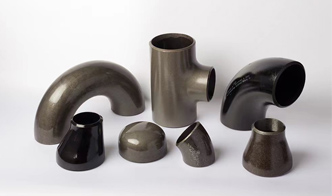Current location:
seamless steel tube
Date:2025-08-16 07:14:16 Read(143)

Understanding API 5L X52 PSL2 Pipes Specifications and Applications API 5L X52 PSL2 pipes are an essential component in the oil and gas industry, specifically designed for the transportation of oil, gas, and other fluids. The API (American Petroleum Institute) 5L specification covers seamless and welded steel line pipes, which are pivotal in maintaining the integrity and safety of pipeline systems. This article delves into the specifications, manufacturing processes, and applications of API 5L X52 PSL2 pipes. Specifications of API 5L X52 PSL2 API 5L categorizes pipes by different grades, with X52 being one of the commonly used grades. The X denotes the minimum yield strength, in this case, 52,000 psi (pounds per square inch). PSL2 refers to Pipeline Specification Level 2, which outlines additional requirements concerning chemical compositions, mechanical properties, and testing protocols, ensuring enhanced quality and performance of the pipes. The composition of X52 pipes typically includes carbon, manganese, phosphorus, sulfur, and silicon. The specific mechanical properties required for PSL2 pipes include minimum yield strength greater than or equal to 52,000 psi, minimum tensile strength of 65,000 psi, and elongation of at least 21% in 8 inches. These characteristics are critical for ensuring the pipes can withstand the substantial pressures and stress encountered during operation. Manufacturing Process The manufacturing of API 5L X52 PSL2 pipes involves various methods, including both seamless and welded production. Seamless pipes are made by pushing molten steel through a die, resulting in a pipe without seams that is inherently stronger and more reliable under pressure. In contrast, welded pipes are produced by rolling steel plates and welding them together, which can be more cost-effective for certain applications. api 5l x52 psl2 pipes Quality control is paramount during the manufacturing process. Various tests are conducted, including hydrostatic testing, which ensures the pipes can tolerate high pressures without leaking. Additionally, non-destructive testing methods, such as ultrasonic testing and magnetic particle inspection, are employed to detect any flaws that could compromise the integrity of the pipes. Applications API 5L X52 PSL2 pipes are primarily used in the transportation of oil and natural gas. Their high strength and corrosion resistance make them ideal for both onshore and offshore pipeline systems. In addition to oil and gas transportation, these pipes are also utilized in water distribution, sewage systems, and other industrial applications where durability is crucial. The versatility of X52 pipes extends to various industries, including construction, manufacturing, and energy production. They are particularly valuable in projects requiring long-distance transportation of fluids under high pressure. The stringent standards associated with PSL2 ensure that these pipes perform reliably under harsh conditions, reducing the risk of failure and ensuring safety. Conclusion API 5L X52 PSL2 pipes represent a crucial advancement in pipeline technology, offering robust solutions for the energy sector. Their superior mechanical properties, combined with comprehensive manufacturing processes and quality control standards, make them ideal for a range of applications. As industries continue to evolve and demand more durable materials, the significance of API 5L X52 PSL2 pipes will undoubtedly grow, ensuring the efficient and safe transport of vital resources. Understanding these specifications and applications is essential for engineers and project managers involved in pipeline construction and maintenance.
Share:
Previous: flange din 2576 pn16
Next: Exploring Various Industrial Flange Types and Their Applications
Kind tips:The above content and pictures are compiled from the Internet and are for reference only. I hope they will be helpful to you! If there is any infringement, please contact us to delete it!
You may also like
- Current Pricing Trends for 6-Inch Galvanized Pipe in the Construction Industry
- Edge Trimming Techniques for Enhancing Sheet Metal Fabrication and Finished Product Quality
- ASTM A106 Specification for Seamless Carbon Steel Pipe
- Design and Applications of 90-Degree Elbow Fittings in Fluid Systems
- api 5l x52m
- DIN86044 Flange
- Cost Analysis of 20 Feet Stainless Steel Square Pipes for Various Applications
- Exploring the Impacts and Applications of All-Thread Coupling in Modern Engineering and Design
- Exploring the Benefits and Applications of 8% 2045 Degree Elbows in Modern Plumbing Systems